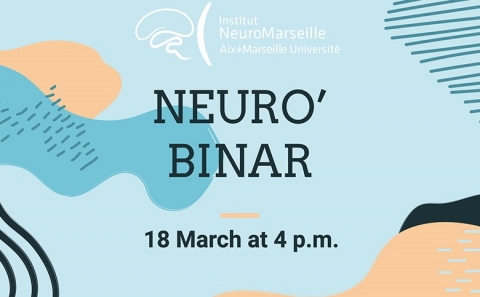Neurobinar #6: March 18th at 4 pm on Zoom

Neurobinar #6: March 18th at 4 pm on Zoom
We are pleased to welcome:
Estelle Nakul (Boarding Ring & AMU/CNRS), she will present how she has moved from academic research on self-consciousness to industrial research on cybersickness.
and after a question & answer session,
Pascale Quilichini (INS) will share with us her research on the dynamics of the hippocampo-thalamo-cortical network
Register at: https://neuro-marseille.org/en/events/neurobinar-6-march-18th-at-4-pm-wi...
Pascale Quilichini (INS) completed her academic education at the Aix-Marseille University, which she obtained a PhD at INMED. Interested by epilepsy in immature networks, she developed and tested an experimental model of Dravet’s syndrome where she identified a mechanism of network synchronization at seizure onset. Then, she did a first post-doc at Rutgers University of NJ (G Buzsáki’s lab) during which she characterized network dynamics in the entorhinal cortex involved in theta and gamma oscillations. Back in Marseille at the Institut de Neurosciences des Systèmes (INS), she did in a second postdoc and then obtained a “chargé de recherche” position at Inserm in PhysioNet team. Her research aims to determine the dynamics of a large network (the hippocampo-thalamo-cortical dialogue) supporting the long-term consolidation of episodic memories.
Estelle Nakul studied both Science and Philosophy in Paris before doing her master’s degree in Neuroscience in Marseille. She completed her PhD under the supervision of Christophe Lopez in the Sensory and Cognitive Neuroscience Lab and defended in 2019. During her PhD, she studied the vestibular and interoceptive contributions to the multisensory mechanisms underlying bodily self-consciousness. For this, she used electrophysiology and virtual reality in healthy participants and patients with vestibular disorders. Thanks to the post-doctoral grant from Neuroschool, she now works in partnership between the Laboratory of Cognitive Neuroscience (LNC) and Boarding Ring. She continues her research on visuo-vestibular integration and self-perception in virtual reality to test a new device against cybersickness (the motion sickness of virtual reality).

